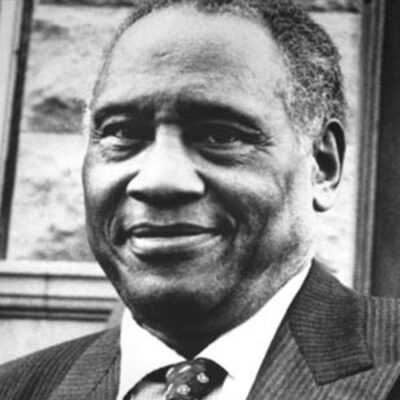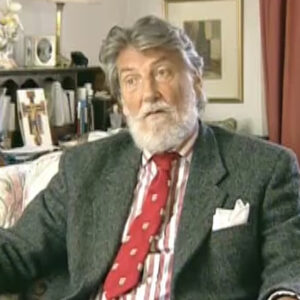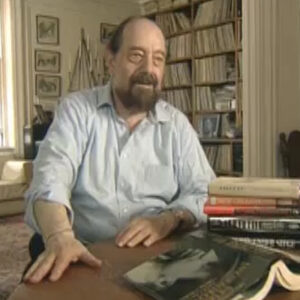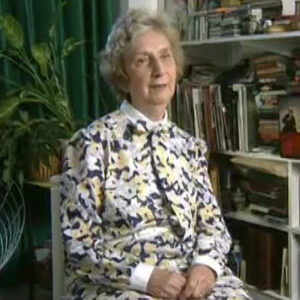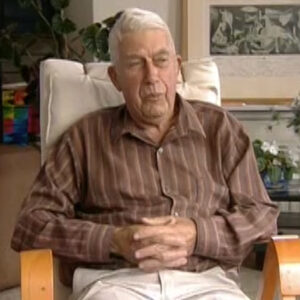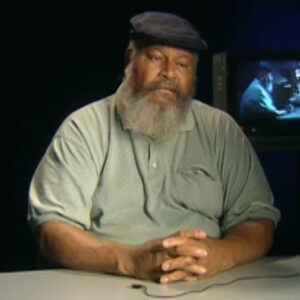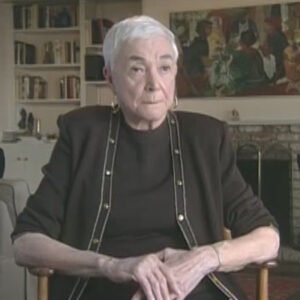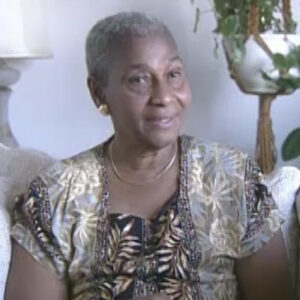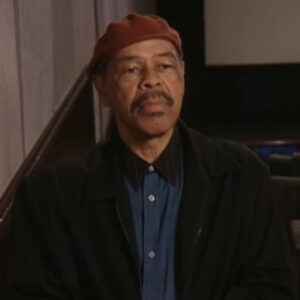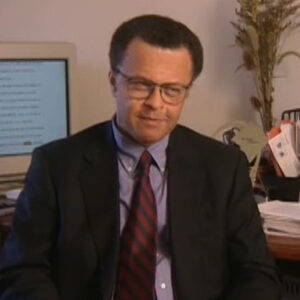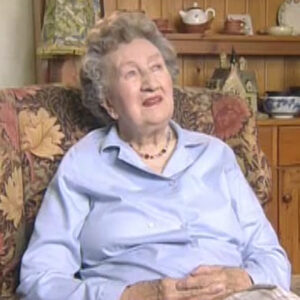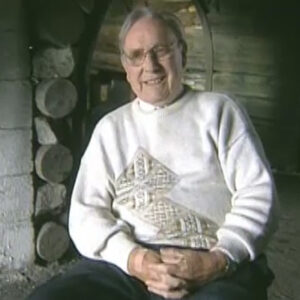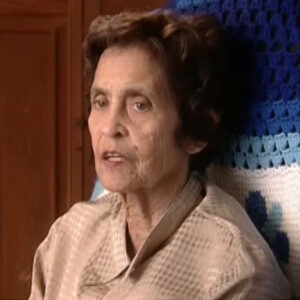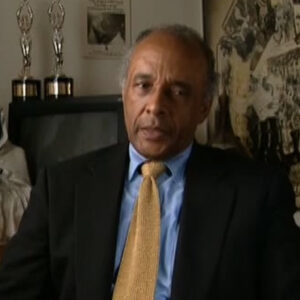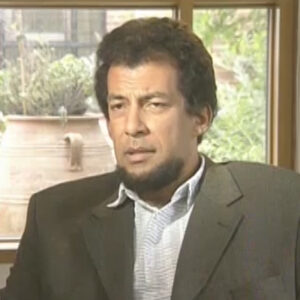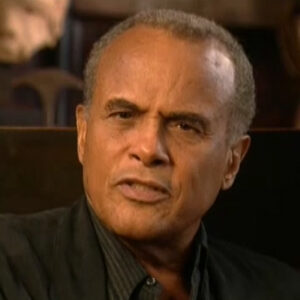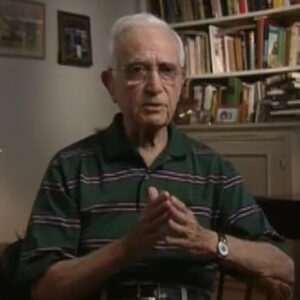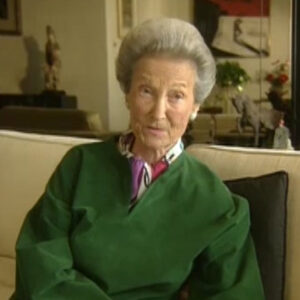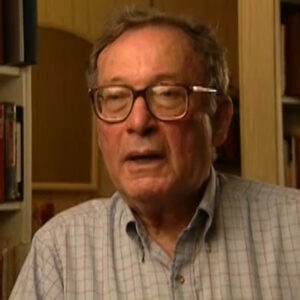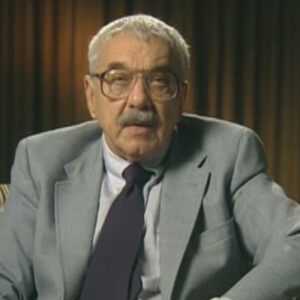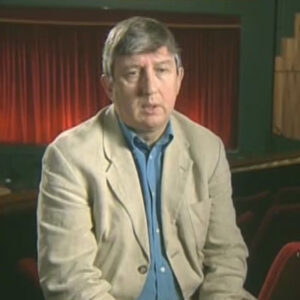Speaker So let me let me just start by asking what?
Speaker How did you get into how and why did you become such a you know, I was a fan, but a research person about Rosie?
Speaker How do you get my interest in Paul Robeson grew primarily from my affiliation with the church, where he grew literally from boyhood to manhood, which is St. Thomas Amazigh Zion Church. I’m a member there and several of my friends have served as pastor there.
Speaker Got it. Um.
Speaker How did you begin to research and how did you begin to come up with the votes and one hundred for why it was decided that in celebration of the one 100th anniversary of Paul Robeson that there needed to be an adequate celebration or something more than adequate. And as a result of that, we decided to put together a committee. As I said, my interest in him grew primarily out of out of my affiliation, the common affiliation that he and I had with that particular amici in Church, St. Thomas Amazigh and Church. We expanded the committee to include not just the two historians from St. Thomas and not just two people from the Township Historical Commission, but also prominent people in the community with whom there was some affinity for for the life and times of Paul Robeson.
Speaker I’m sorry, I need to make an adjustment, please stand by for speed sound and believe it or not.
Speaker OK, I want to turn to these individuals in the country I’m live also.
Speaker Yeah, yeah.
Speaker I’m off the car, so I’m so loose, I’m falling apart, believe it or not. OK, I’ll bring it back to you. What was what was wrong with him? Why is he so tight?
Speaker That’s very much a black man in the threshold of the 21st century. Could earn the right to be this type. It’s nice, actually. That’s nice. OK, so. All right. We’re rolling. Yes, sir.
Speaker On good. OK, so OK, give me a little background on the town.
Speaker There’s a radio call, it is somebody past.
Speaker Some background on Somervell.
Speaker Then what was it like Somerville has has always been as a town has always been the or at least in most people’s memory, is the county seat of Somerset County. So as a result, there was a certain high level of activity, comparatively speaking, for this relatively rural part of New Jersey. So as a result, it was a little different from most other neighboring towns. But one of the other things about Somerville is that Somerville was rare in that even in the earliest part of the 20th century, there was still there was still a presence of African-Americans in the school districts.
Speaker And that’s one, you know, from a social point of view, that that makes a big difference. In fact, that’s one of the reasons that Reverend Robes and chose to bring his son here to Somerville.
Speaker That’s not going to ask. When Paul showed up, what would he have found? What kind of situation would he have found socially and politically?
Speaker He would have found what could be considered a mildly segregated town. There was, of course, a colored elementary school, which is which was most of the training that the African-American children in the town gained. They would finish up through eighth grade and most of them would go to work in various vocations like carpentry and plumbing and brick masonry and the like.
Speaker For the very academically gifted students out of the African-American community, they would be allowed to go to the high school, and among which Paul Robeson was one that talked about this Brooke, Brooke, Track Brooker’s and trackers, brokers and trackers, at least the way it’s been described to me by several different generations of people that live in Somerville is a sort of economic segregation within the black community. What happens is that you have the Brooker’s people who live closest to Brook, which runs through the center, the geographic center of Somerville. And then you have the trackers, which are the people who live closest to the railroad tracks. And at least the way I understand it, with very little change, people who live near the brook tend to be the the middle class, if you will, as opposed to the trackers who tend to be the more working class, blue collar, traditional blue collar type work. A century ago, what you found is that that the people who were tradesmen, craftsmen, they were the people who were considered to be brokers and hence they lived near the brook.
Speaker The trackers were the people who worked on the railroad tracks and in the various foundries that were around the area.
Speaker What was Paul? Paul was a broker, but he was a transplanted broker, you know, by by economic disposition.
Speaker He would have been a broker because his father was, of course, college educated and was the black preacher in town. But even by geographic preference, he lived very near the brook as well.
Speaker OK, now what what do you think the impact of Summerville was on the ropes? And I mean, I it’s a large question, but we’ll just start this initially. How do you think that impact and what did it impact on them at all and how the impact that that Summerville had on Paul Robeson?
Speaker I think it’s fairly clear. The one thing you have to bear in mind is that Paul Robeson came to Summerville as an adolescent and he left as an adult. And you can start you can see that that all of the greatness that visited itself on Paul and Paul visited himself. The first true evidences of that you saw taking shape in Summerville.
Speaker Paul Robeson came here as a as a boy, presumably with a squeaky tone to his voice. In fact, one of the stories that he tells is when he first discovered that he could sing that happened here in Summerville the first time he realized that he was a baritone that happened here in Summerville, the first time that he realized that he had great acting ability. That happened as a student in high school. His speaking ability was, in fact, sharpened at St. Thomas Church as a member of the choir, the children’s choir and then ultimately the adult choir. And his speaking voice was was honed in the pulpit, in fact, at St. Thomas.
Speaker Yeah. Tell me that story about the possibility that he might actually have stood in for his father.
Speaker Oh, yeah. Playing. Applause.
Speaker OK, OK, well, yeah, we’re talking about Robson’s learning to to use his voice.
Speaker Um, it was a story about the possibly you might have stood in for his father.
Speaker It appears that there’s a pretty good chance that that he stood in as a guest.
Speaker That’s right. Yeah.
Speaker I’d like to say, OK, regarding the possibility that Paul Robeson actually stood in for his father delivering sermons, that there seems to be there are at least some anecdotes regarding Paul Robeson having done that. And research indicates that that not only did he do it as a speaker, but he did it officially as a representative of the Amazigh in church. And there are two things that suggest that, first of all, Robeson and talks about it and in some of the interviews that were conducted with him and and some of his friends who knew him then were also aware of the fact that that in addition to having a powerful speaking voice, that he was, in fact ordained to to be able to deliver these the speeches officially recognized by the denomination. So so at the end of William Drew Robeson’s life when he was quite ill, the story has it that Paul Robeson would come home from school, taking the trolley from New Brunswick into Summerville and would come home to St. Thomas and deliver sermons for his father.
Speaker Hmm. What what kind of life did the Virginia lead, I mean, was most people think of Paul as, you know, the tall six foot five hulking.
Speaker Yes. Behemoth of a man, you know, but it is a kid now.
Speaker So what do you think it was like from the pictures I’ve seen of Paul Robeson as a high school student? You could not tell that he was going to become this massive man that that that most of us are used to seeing. He was a gangly sort of kid. He was he was almost six feet tall. And during his high school years, he had grown just about to the six, four, six, five that most people remember him. But he was still developing body mass, if you will. So so he looked kind of awkward in every picture that you see of him as a high school student. He looks like his arms are a little too long for his body and his shoulders are very broad, but his arms on very muscle down and his neck is long, but it’s not quite as thick as it would become. So what you start seeing is you see really an awkward looking sort of kid. And the images that it evokes is that his father was was shorter than him, though not significantly shorter. And you see this sort of tall, gangly kid trailing a pace and a half or so behind his father as they as they walk through town.
Speaker And that’s the images that that many people still talk about today, that the few that are still alive, that remember Paul being in Somerville then when I was was was from your research was Paul I mean, clearly, he wasn’t a big boy of the day and he was a nerd.
Speaker I mean, was the kind of that guy was a mix of what Paul Paul Robeson as a as a young man, as a as a boy growing up in Somerville, did so many things and excelled in so many different areas that I guess whatever perspective someone would choose to have of him, you would you would have you’d have a picture of a boy who never earned a final year grade of baloney during his entire four years in high school, although he had a couple of terms where he earned B’s and he quickly turned them around to to a.. So clearly, he was recognized as a scholar, but he was also voted as a class orator. So he had a very fine speaking voice. So there were some people, I’m sure, who remember Paul as being a great spokesman, even as a teenage boy. Then he also acted and he was basically a star in virtually every dramatic presentation, which is remarkable when you think about the fact that Paul Robeson grew up during the age of birth, of a nation where where black youth were being portrayed as rapists and murderers and and being illiterate. And now all of a sudden, you have a 14, 15 year old boy quoting Shakespeare and delivering plays. And then, of course, you had the athlete who was a star on every team that he played for. He earned something like 12 or 11 or 12 varsity letters during the time he was there. So I guess whatever perspective a person chooses to have, whether it was nerd or whether it was. Jack, or whether it was hand as it relates to his dramatic abilities or whether it was spokesmen and you could have any of those and all of them, and yet they’d all be correct that he party Paul Robeson did not party, at least at least that’s the suggestion that I get.
Speaker He he didn’t have time in the party. I mean, bearing in mind that he studied a lot. He played sports, he sang. He prayed with his father. And his father was a traditionalist. His father insisted that Paul know about the arts. So Paul was, even as a high school student, was fluent in the Latin, Greek, Hebrew, as well as the king’s English, the sciences, history, dramatic arts. So he really didn’t have time to party. But there is a clear indication that he had a pretty good time as a student because he was a mischievous kid and in spite of the fact that he didn’t have a lot of time for mischief.
Speaker That took a little bit about your perception of his relationship with his father, because clearly his father is like a major force in his life.
Speaker When I talk to people who knew Paul as an adult, even in his later years, what they talk about is the fact that even as Paul approached the end of his life, he viewed his accomplishments as he imagined his father would. So you can hear a 75 year old man talking about the fact that I bet Pop would be proud of this accomplishment. So it’s clear that that his father had a very, very distinct and strong presence, spiritual and physical, in his life. Paul, at the time of his mother’s death, most of his brothers and sisters were very close to adulthood. So there was just as as some people say, the old man and his son. So they got a chance to to to grow up together, if you will, for the for the last phase of William Drus life and the first phase of of Paul’s adulthood. So it was it was clear that they grew up together at this point from from the elder Rabson being becoming the elder statesman of the family, becoming this this steadying influence in his family that had gone through so many years of tumultuous activity. And then you have Paul growing from childhood to adolescence into adulthood, and they did that together. So so it’s very clear that that just from that point of view, he had a very strong presence. But if you look at the manner in which ropes and learn and his thirst for knowledge, there’s every indication that that was fed initially by and very strongly by his father.
Speaker But do you think his father put something on him? I mean, in that sense, maybe too much on them, because he was it was kind of a driven I mean, he was, you know, one level. He was aspiring to do the best that he could be, you know, because this family comes on with a B in Latin. Yes. But his father’s name and, you know, to be you know, you can get a name. Yes. So now on one level, that’s good because it inspires them to do the best. But the other hand, you know, that’s a driving thing. I mean, just just not so much of a scholarly point of view.
Speaker Your father said, do you think that was like too heavy or do you think one of the things that that as I look at the life of William Drew Robeson and the impact that that he had on his son Paul and addressing the question as to whether or not Paul was too driven an individual, or did his father turn him into this perhaps excessively driven individual? I would I would say no, because the evidence is that everything the Paul Robeson did or even attempted to do, he was such a smashing success and and he still wasn’t satisfied. And at the point that he realized that he wasn’t satisfied, he was able to take it to the next level and and excel again. So clearly, there was room in his brain, certainly, and in his heart to be able to to excel whatever, whatever in whatever endeavor. I guess the deeper question is, is in this respect, is it possible that Paul’s father could have driven him to a point beyond which beyond which Paul was capable? Again, the answer has to be no. You know, you tell the boy that that would be is not good enough. And he goes on and he brings brings home an A and it doesn’t appear that that he sweated about getting in a I mean, there’s a student that, until he got to law school, didn’t know what a final grade of an essay was. And then he gets to law school and he’s playing football four nights and studying three nights and still able to graduate respectably enough to to be able to gain entrance into a prestigious law firm. Paul Robeson was a driven individual.
Speaker And it doesn’t appear to me that he was excessively driven. Because he was able to excel at every each and every endeavor.
Speaker What you mentioned earlier, this is a mildly segregated town, but at the same time, there seems to be instances where. Paul’s friendships, you know, violated that segregation and violated in terms of legally, but he had white friends. Yes.
Speaker Why do you think that happened when you when you talk about mild segregation, you probably visiting that that phrase in in terms of today, Paul Robeson did indeed have have white friends. In fact, that friendship was very clearly returned when when the senior class made the decision not to go to to Washington, D.C. for their senior class trip.
Speaker They boycotted that trip because that trip was OK in the senior year.
Speaker The the class of 1915 did a lot of different things to prepare themselves to go to Washington, D.C. And as the moneys were all raised and everybody was able to to get their their funds and to go through this trip, it was discovered that Paul was not going to be able to participate in all of the activities because Washington, D.C., was a segregated town at the time. So after some discussion, the class leaders, excluding Paul, because Paul was at the time one of the class leaders, they decided that rather than go to these facilities and know that their beloved classmate could not stay in the same hotels that they stayed, could not eat in the same restaurants, could not, in fact, visit some of the monuments in Washington, D.C., with the same level of interest and participation. They opted to cancel the trip altogether. And one of the things that I talk about in my writings is the fact that that this is an evidence not just of how progressive Summerville was as a community, but it also talks about the ethical leadership that the Robeson provided for his friends and classmates.
Speaker Hmm. OK, so having said that.
Speaker Now talk about the, you know, friendships with white people and.
Speaker With with with White and his father, yes, his father was a respected member of the community as as you would expect and as is the tradition when you have a clergyman in town, even a clergyman who who is black again in that age in time, he was still a very respected member of the community. It’s clear that intellectually he held his own with with everybody in the town. And that’s both father and son, the elder robes and had white friends. In fact, he would visit the homes of many of his neighbors and, you know, sit on the porch because, of course, social mores being what they were, they were not allowed in the homes, robes in the junior robes. And Paul had white friends as well. In fact, as one of only two African-American students in the Summerville High School class of 1915. It stands to reason that he would have at least had classmates, but but many of them were his friends. And in in some respects, they did violate the mores of the times.
Speaker Mean, was there a was there a law that said you could not go into a white person’s home?
Speaker No, but what there was was something stronger than a law. And that was the the the social aspect of what could and could not happen. We know, for example, that that Paul Robeson was not invited by his classmates to most of the social functions, dances and the like. And in fact, when he attended the dances, he wasn’t allowed to dance with other students. He danced with teachers. During that time, the social law, as it were, common law, was stronger than than legal law because the enforcement aspect of it, you could be ostracized and shut out or chased out of a community if you were seen as being too friendly to the colored population in town. So so it was very clear that they didn’t have to be a law. And even if there were, it probably wouldn’t have been as strongly enforced or enforceable as as the social as the social mores of the day.
Speaker Mm hmm. Uh, one more thing.
Speaker Give me a sense of.
Speaker Of black.
Speaker Somerville, how many people were here and, you know, they operate separately or, you know, especially in terms of, you know, you’ve got an older guy with a son and no mother, how do they, you know, relate to them?
Speaker And they he was leaders or did they, like, help them out and just kind of stand off and watch them as a distinguished figure? How did that work?
Speaker Yeah, the way I understand it, again, from my conversations with people who were around during the time the robes and family was was very much respected, his sons always came back to visit. So now you’re talking about sons being in their in their early to mid 20s. And of course, his daughter came back because she was in school at the time. The robes and family was very highly respected because of how because of the leadership that was that was evidenced by by the elder robes. And they weren’t set apart from the rest of the community. If anything, they were embraced in. A lot of that had to do with the fact that Paul was such an engaging kid that you couldn’t help be attracted to him. Even people who had to cross social borders found themselves attracted to Paul as a youth. And then, of course, with the stately manner of his father, which is which is what a lot of people remember about William Drew’s final years here in Somerville. He was such a stately gentleman that you couldn’t help being attracted to him. And the manner in which he carried himself was was also something that was very attractive. So he was not ostracized as a single father or as a as a potential leader in the town by any by any means.
Speaker But I think we missed something.
Speaker The only interesting thing is the what they did here in Somervell for the kids, the workshops.
Speaker Oh, yeah, yeah, you’re from. How does that and how did you. And also I’d be curious to know how they, uh.
Speaker Yeah, black and white kids, obviously the attitudes are different based on generations. You know, the older generation, there are still people who whisper Paul Robeson. Whisper, whisper. Yeah, well, because bear in mind, if you’re talking about somebody who’s 50 or older, what you’re talking about is people who remember the Red Scare, the the House un-American Activities Committee and that whole that whole episode in Robeson’s life and how dangerous it was to be perceived as being a communist. When you talk about this, the strange phenomenon of being black and red, there’s probably nothing worse. It’s bad enough in the in the opinion of some people that that you’re black, but then also to be a communist or red. That was probably the most lethal combination. So as a result, you’ll even watch that, that elderly African-Americans in the Somerville community, they still whisper Paul Robeson’s name when they’re in general, when they’re in general conversation and when they’re in mixed, if you will, audiences now behind closed doors. There’s a very clear evidence that there is that there is just an enormous amount of pride that that they knew this man when he was a kid before any of the stuff that he became world famous for. He didn’t do any of that stuff until after he left. But it was clear that that they saw him doing it. They saw him portray Othello as a as a high school student. They saw him portray Julius Caesar as a high school kid. They saw him sing as a baritone, as a kid. So so when you talk about the older generations, black and white, black people still whisper Paul Robeson’s name. There are still some very elderly white people who virtually spit when they say the name Paul Robeson and the rumors that go around about. And I talked to one gentleman who said to me, well, even though he supported Hitler, I still think he was a pretty great guy because they they will associate communism with the very worst of mankind. So, of course, they say, well, Hitler didn’t Hitler wasn’t a communist. Well, it doesn’t matter. He still support him? Well, no, he didn’t support Hitler. In fact, he got in trouble for going to Spain, fighting some of those very things. Well, it doesn’t matter. He was a red and that’s that’s good enough. You still hear people that, as I said, just about spit when they as they mentioned Robeson’s name. Now they’re children who are a part of the the tail end of which is the part of my generation. They’re still trying to learn things about Paul Robeson. I find myself engaged in conversation with people in their in their mid to late 40s, early 30s that that whole 15 year, that that baby boom, the tail end of the baby boom generation that don’t know a lot about Paul Robeson, because when they were in school, people weren’t talking about Paul Robeson. So now as they learn things about him, I’m still talking to people who grew up in Somerville. They knew that Paul Robeson was here for a little while, but they didn’t realize that his formative years occurred during his time in Summerville. Now, the younger generation, which is primarily what what Robeson 100 concentrates on, what we’re proud of being able to say that Robeson 100, which is the name of the group that celebrates the centennial of Paul Robeson and is the Summerville Group, which is to be distinguished from any other group, there are no other groups that actually use that phrase. It’s a trademark. Robeson 100 means Robeson’s life in Somerville. We are proud to say that every child in Somerville and Braunsberg, which is the school district which sends their children to the high school, every child from kindergarten through eighth grade was able to have an educational program which dealt with Paul Robeson kindergarten classes. We actually went class by class to every child from grade one, kindergarten, first and second grade, third and fourth grade. Primarily, we did larger assembly programs, but we did our long programs, fourth and fourth, fifth grade, sixth grade. We also did classroom size discussions, sixth and seventh grade. We did large assembly type discussions, eighth grade. We went class by class. So every child in the towns of Somerville and Branzburg, which now send their children to Summerville High School, was able to benefit from some type of instruction regarding the life of Paul Robeson.
Speaker OK, so start again. OK.
Speaker When you talk about the impact of Paul Robeson, obviously the the manner in which you present it is going to have a lot to do with the age and the intellectual ability of the people to to absorb what went on in in Robeson’s life. One of the things that Robeson 100 did was that we developed curriculum specific information for grades K through eight. So for a kindergarten first, second, third grade, we had a very simple discussion. We asked the children to imagine the greatest singer that they’d ever heard. We asked them to imagine the greatest athlete that they’d ever seen, and we asked them to imagine the greatest actor that they’d ever seen. We asked them to imagine the most powerful leader that they’d ever known and the most effective speaker that they’d ever known. And then we said, now, just imagine. If all five of those persons, just one person now you have some idea what it would have been like to have known. Paul Robeson. Just imagine further if this person was actually a kid who was around your age, and when you start putting it into that light and for a child to understand that when Paul Robeson got the Somerville, he was 12 years old, imagine a 12 year old kid who was the greatest person that you’d ever known in five different areas. And if and it’s a lot easier to pull a kid into that imagery. And in fact, we translated that image all the way up through to the eighth grade for the for the children. And as they started to sit and think about that, the enormity of this man’s life started to to really grip them. And then to understand, particularly for the kids at the Somerville Middle School, that this guy went to school a couple hundred feet away from where they were sitting. Listening to the presentation, he celebrated in a church literally across the street from their school. He lived in a home about 500 feet away from where they were assembled to listen to this message. And as they started to absorb it, you could just watch the children’s faces light up all the children, not merely the boys who could identify with the athleticism, not merely the other children who could identify with with the acting and speaking and singing talents, not merely the the black children who can identify with this with this man who is of their race, if you will. But all the children could could understand it. And we even were able to make the curriculum address such thorny issues as as the race issue. Children understand they have a very basic understanding about racism and they understand that it’s inherently wrong. And the younger that they are, the more that you can hammer home this message, particularly if they’re sitting in a diverse group. So we found that we had no problem presenting those images to the children ages, and I thought they’d done that.
Speaker Well, listen, this is a large question. But this you I mean, much of what this film is trying to do is to kind of like America and the rest of the world full of film.
Speaker But the impact with the presence and impact of what I. So in that context, what do you think the impact of Somerville is on the whole crisis?
Speaker I think that the impact of Somerville as a community on the life of Paul Robeson. We were the laboratory in which ropes and was able to develop the experiments that would come full flower again as you talk about ropes, and it never occurred to him, at least by by his description, that he could sing until such time that he hung around his brothers in the home of the parsonage for St. Thomas Church. And then when he got outside the home, it dawned on him that, hey, with this powerful voice, maybe I can be a singer. And in fact, we know that there were teachers who encouraged him to sing and to act. We know that that the speaking ability was was encouraged here inside the church and also in the high school. We know that some of his images about about race relations had to have been developed here because, first of all, he saw a community that allowed Negro students or colored students and as he would have called them to excel, but not all students. So he understood that there were going to be some students who were separated out. And he put it as a part of his social contract as an adult, that he wanted to see as many people included in this whole imagery of of America that many people came to associate with him. We know that most of this stuff started happening. Most of the things that happened to Robeson in later life, the first evidence that you saw of that occurred in Summerville.
Speaker So Summerville as a as a community had a had a very large impact on the life of Robeson because it gave him an image of the possibility of the greatness that he would assume.
Speaker Hmmm, that makes sense. Is there anything else you’d like to say? I mean, I was like somebody because I was just something, but it’s a statement you want to say all the same.
Speaker I just want to know. I mean, inversed. This 20 years, so because you Randle’s a person, what is done to you emotionally and every white person? Yeah.
Speaker One of the things that that when you look at the life of a person from an historical or from an academic point of view, what tends to happen is as you immerse yourself in that person’s life, you tend to develop an emotional attachment and whatever whatever relationships you can tie in, whatever common ground you happen to assume gives you a greater appreciation and a greater emotional relationship with with that particular person, with Paul Robeson. What I found is as an academic, it’s almost impossible for me to even think of myself as an academic pursuing information about the life of Paul Robeson, having lived in a town a block away from where he grew up, having or living in a town a block and a half away from where he worshipped, living in a town a block away from where he studied, walking with my own son on the very ground that that Paul and his father walked gives you a very strong emotional attachment to the robes and legacy. And it’s almost impossible to to detach oneself from the emotional. But but the impact that Paul Robeson and his father in particular give to me is that I find myself saying to my son, you you can do you literally can do anything that you wish. And there is no such thing as doing too much when when it comes to excellence, excellence breeds excellence. And the important thing about the life of Paul Robeson is that the Paul Robeson was able to excel and and he was encouraged to excel in as many endeavors as he could. And that’s the legacy that I’m giving to my son, and that’s the legacy that I’m keeping to myself. I study people known as the Talented Tenth. And when you start looking at the talented tenth, there’s never been a person to have epitomized that that whole image better than Paul Robeson. He was the most remarkable being that has ever been that has ever lived in this country. You think of on an intellectual level, you think of on a on an artistic level, you think on an athletic level. And then to think that this man could have been greater were it not for the racial restrictions, both social and legal, then that existed during most of his lifetime. It’s almost frightening to think of what he could have become when you look at it in the context of all of the things that he already did, all of the things that he had, in fact, become. And if you want, I think it’s almost impossible to add anything about about Paul Robeson, about the life of Paul Robeson.
Speaker You could talk about Paul Robeson for hours upon hours and still not say enough, except to say that that there’s never been there’s never been before or since another individual who was able to scale the heights Paul Robeson scaled. And the scary thing about it, and perhaps the frightening thing is that that we’re moving ourselves away from requiring our children to be at their very best at even one thing. And when you think about somebody being, uh, achieving at such a high level that so many things, it speaks to the possibilities of what we can become. And I think that that ought to be a model for our life as parents, as it relates to the life of William Drew and as adults, as we decide to emulate whatever particular facet of greatness Paul displayed.
Speaker And let’s try this one time.
Speaker The one question that was a playing through, we went through two planes. The second one was actually the first one that was loud. And that was a question about his father. Um.
Speaker And our relationship to them, we stop and you know that it for the father. On the positive side, dealing dealing with in other words, how how did Paul negotiate, who see the his social relationships with white people, given the fact that he would say.
Speaker Sure. I mean, as I said, in his exceptional personality, you know, sort of overcame that. But you can say that again. Yeah.
Speaker You know, when you start talking about the life of Paul Robeson and Paul Robeson’s father as it relates to the how Paul Robeson and his father navigated themselves through the sometimes or the more often than not, if you set it up that way, it’s going to be OK to say boom.
Speaker Yeah, just tell me about it. Give me a narrative about, OK, he did.
Speaker OK, Paul Robeson and his father were able to navigate their way through the murky waters of of racial and social segregation, primarily because they were such exceptional people, even given the fact that Somervell, although mildly segregated, they would have been considered a progressive community in that there was an opportunity for African-American children to attend the high school, which was unusual. But again, when we talk about it, we know that Paul Robeson’s father celebrated quiet time and reflective time with his white neighbors. He was able to sit on the porch of many of his neighbors and discuss current events or discuss whatever happened had been going on in Europe, remembering that part of the time that Paul Robeson’s family, the Paul Robeson and his father lived in Summerville was during the beginnings of World War One. So they were able to talk about developments in Europe and the like. But then there was still a very clear line that could not be crossed. And that line was that that for the most part, there was no interracial mixing, if you will, visiting in the homes of white and black citizens in the town of Somerville. Even as it relates to Paul Robeson’s life in school, Paul Robeson was never invited to the dances and other social functions by his classmates because it would have violated social mores. He was usually invited by teachers and that was seen almost as a as a curricular obligation. So so when you talk about that, that whole social fabric, although there was some cooperation, although there was some integration, if you will, there were still very clear lines, it could not and would not have been crossed by the ropes and family or by their neighbors.
Speaker What do you think it was about Paul and his father that that enabled them to make jokes when they did make jobs, you know, jumps jumps into integration, into interracial situations?
Speaker Or was it was it the fact that they were that exceptional or was it or was it a social position as a preacher or some of it had to do with with with the social position.
Speaker But but what was unusual about St. Thomas in that day was most of the preachers 30 years prior to that and throughout the history of St. Thomas, they’ve always had highly educated clergy serve at that church. So that in and of itself.
Speaker All right. I heard the plane. Yeah.
Speaker OK.
Speaker The fact that the Paul Robeson’s father was a clergyman would not in and of itself have been something that would have gained him acceptance. There were black clergy in Somerville before and after Paul Robeson. But but what made Robeson different as pastor of St. Thomas, which would not it would not have made him different as a pastor of St. Thomas, but would have made him different among his other clergy. Black clergymen in the town was the fact that he was formerly college educated. He had a.
Speaker OK. It’s over and all the time yesterday was horizontal.
Speaker Yeah, so so basically because I guess in a word, it in a word, one of the reasons that that Paul Robeson and his father were able to to to jump over racial and social barriers would not have just been because of how exceptional they were as individuals, but also because there was just a sense of nobility about the way they carried themselves. They were trained in a very classic traditional educational mould, and that imbued them with a certain sense of of of nobility that you would have seen in their carriage. Even as even as a teenage kid, Paul Robeson apparently carried himself differently than other youth, white or black, and that would have transcended whatever social mores existed at the time.
Speaker It’s very quickly, how did he get here?
Speaker Well, I mean, William, in 1910, William Drew Robeson requested to have another church or to be assigned to another church. He had effectively built the church in Westfield and decided that at his advancing age, he didn’t want to concern himself with building a new congregation. He wanted to come to a town that had an established Amazigh and church that had an established black community, that also had access to a high school which would have allowed his son to graduate. And so it was decided that he would be assigned to the Summerville Church, St. Thomas Church.
Speaker Just me as well. OK, one other thing, sports.
Speaker OK, the ropes and family moved to Westfield a couple of years after the death of Louisa, but ropes and, um, and actually what happened was Reverend Robertson left the Presbyterian Church and asked to become a member of the clergy for the Army Zion Church.
Speaker And when he did that, they assigned him to build the church, the down the street and his Zion church in Westfield.
Speaker OK. What were the conditions under which she left the house, very serious for who they were for eight years, he was there for.
Speaker About about 20 years, right?
Speaker Yeah, about 20 years, the way I understand it, there were allegations, uh, one of the things that we know about Reverend Robeson that throughout his life, he he preached and encouraged his parishioners and his townsfolk to have pride in their in their race race pride, which was and I guess the most polite way you can say, which was almost a foreign concept.
Speaker Then the other thing you have to bear in mind is that the Reverend Robeson was in Princeton at the same time that Woodrow Wilson was in Princeton. And Woodrow Wilson, by the way, was a clergyman at the White Presbyterian Church while while Reverend Robeson was at the Black Presbyterian Church. Woodrow Wilson with with the whatever Woodrow Wilson was trained as a son of the South and as a son of the South, he was a almost a rabid segregationist. And as such, talk about race pride was tantamount to treason, in his view, even before he became president. And as a result, he heard about this, this fellow who was going about doing this, this heretical thing of preaching race pride. Somewhere in the midst of all of these preachings came allegations that the money was not being handled as appropriately as it should. What ensued was a very, very nasty battle among factions of the church, the group that believe that these allegations were not only false, but they were designed, in fact, to split the church and then the other faction, which believed that this was absolute nonsense. And they were and they so you had these two groups, one, that they believe that there was something to be gained by supporting Wilson and others contentions that Ropes and was a was a racial agitator, which is an interesting term that was sort of visited on his son 50 years later. But but these charges went on for years and years and years. And finally, they after it was in spite of the fact that it was ultimately proven that there was no malfeasance. Reverend Robeson was asked to leave. And when he left during the time of all of the charges, that’s when his wife started experiencing health problems. And then within a couple of years after having lost his wife and then lost his church, that’s how he decided to just leave Princeton altogether and come to Westfield.
Speaker OK, that’s pretty good. Got it, you know, between that and Lloyd Brown. OK, anything else in the last one is.
Speaker Yes, Rolton Rabson did, in fact, in his later years, acknowledged Somerville as having a lot to do with with his with the formation of of self that that most people were familiar with as an adult. Robeson in his in his book Here I Stand. He talks about the fact that the.
Speaker I vote for him in Robson’s book Here I Stand. He talks about a couple of things that I found was interesting, found to be interesting as it relates to his formation of his ideas about about race integration and success. He talks about the fact that that he was well received by most of the people in the town, as was his father. But he also talks about a principle in the high school who was determined to see him fail and in fact, ostracized him, punished him repeatedly for just about anything that happened in the high school.
Speaker And what he learned was, even in the face of overwhelming success, that they were going to be people who, in fact, ignore that success and only concentrate on the negative aspects of Robeson’s life. So so he talks about the good and bad in terms of the formation of of self in Somerville.
Speaker You know, if he did he ever give anything back, either financially or, you know, thought concert or anything?
Speaker I was curious. I don’t have any evidence that he did that. But knowing Somerville as a town and hearing the townspeople talk about it, I wouldn’t be surprised if he try if he didn’t try to give something back.
Speaker And it may have been refused, because when you hear people talk about Robeson’s life when he was a star, when he was a star, he was also you also heard the rumors of him being a communist. So you would have, again, the whole inviting of of a black and red person into their town would have been an unheard of thing in Somerville during during that time.
Speaker I mean, so in the long run, I mean, they didn’t acknowledge until recently through you, the town the town of Somerville did not as as a as an entire community, did not acknowledge Paul Robeson in the way that that you’re seeing it now.
Speaker And again, a lot of that had to do with with his assumed political affiliations. They were this they’re still, in fact, fear about an affiliation with Paul Robeson. As I said, if if you would find some of the very elderly people in this town, they still whisper Paul Robeson’s names in certain quarters and behind closed doors, out of earshot of people that that they would fear reprisal. You’ll hear them speak with a certain amount of pride about the life of Paul Robeson. So so the embracing of Paul Robeson or the lack of embracing of Paul Robeson, I don’t think had anything necessarily to do with with not wanting to, but from a fear of embracing him.

